Labour does the splits
Seven Labour centrists and Remainers have jumped Corbyn’s far-left Brexit ship. Emily Hohler reports.

Get the latest financial news, insights and expert analysis from our award-winning MoneyWeek team, to help you understand what really matters when it comes to your finances.
You are now subscribed
Your newsletter sign-up was successful
Want to add more newsletters?

Twice daily
MoneyWeek
Get the latest financial news, insights and expert analysis from our award-winning MoneyWeek team, to help you understand what really matters when it comes to your finances.

Four times a week
Look After My Bills
Sign up to our free money-saving newsletter, filled with the latest news and expert advice to help you find the best tips and deals for managing your bills. Start saving today!

"After years of whispering and plotting, the Labour Party split has begun," says the Financial Times. On Monday, seven Labour MPs announced they "had had enough of the party's leftward drift under Jeremy Corbyn and concluded Labour, as they knew it, was lost". The group Chuka Umunna, Luciana Berger, Mike Gapes, Chris Leslie, Ann Coffey, Gavin Shuker and Angela Smith has yet to form a new party and will sit in parliament as The Independent Group.
Their motivations for quitting differ: the "abhorrent rise of anti-Semitism" which Corbyn has failed to tackle, an "increase in misogyny and bullying, and "an anti-Western foreign policy" which gives the likes of Venezuela's Nicolas Maduro the "benefit of the doubt". Though united in their opposition to Brexit, the group has chosen "not to put Remain at the heart of its agenda".
A mix tape with dated tunes
However, the goup's statement of independence "reads like a New Labour mix tape" with its talk of a "mixed social market economy" and a "multilateral rules-based order". One suspects that if there is a centre-ground, it isn't "London's formula of economic and social liberalism", but the opposite: "tax-and-spend plus defence, law-and-order and patriotism what is generally known, and dismissed with a sneer, as populism".
MoneyWeek
Subscribe to MoneyWeek today and get your first six magazine issues absolutely FREE

Sign up to Money Morning
Don't miss the latest investment and personal finances news, market analysis, plus money-saving tips with our free twice-daily newsletter
Don't miss the latest investment and personal finances news, market analysis, plus money-saving tips with our free twice-daily newsletter
There is a "huge gap" in the centre ground, insists Rachel Sylvester in The Times. Brexit has "scrambled" the "political Rubik's Cube" and both the Tories and Labour have been "taken over by extremists". MPs of all political colours have formed alliances to defeat the government; "cultural and generational differences" trump "old left-right divides". Chuka Umunna's promise to leave the "old tribal politics" behind will appeal to many who want something different.
It remains to be seen how many more MPs it will attract, but the original seven have already been joined by Labour MP Joan Ryan and three Tory Remainers, Anna Soubry, Heidi Allen and Sarah Wollaston. Labour's deputy leader, Tom Watson, has made an "emotional" plea for Corbyn to change direction to avoid further defections, say Jessica Elgot and Rowena Mason in The Guardian. Many MPs have said their response would depend on Corbyn's reaction, including his response to deselection attempts and social-media attacks, and that a "hardline response" would prompt them to jump.
If The Independent Group's numbers do swell, particularly with non-Labour MPs, finding a coherent strategic direction could be tricky, says Stephen Bush in The Daily Telegraph. The group believes Corbyn is a "danger to the country" and that the Tories are devoid of "compassion and competence". But is it aiming at being a cleansed Labour party, or a British version of the French En Marche, an entirely new movement targeting voters of all political persuasions?
The splitters are "planning a dance of the seven veils", putting values before policies, hoping to build "momentum and interest as they evolve", says Robert Shrimsley in the FT. Building from scratch isn't easy and this "may not be the solution to our broken politics", but it is the "first step toward finding one".
Get the latest financial news, insights and expert analysis from our award-winning MoneyWeek team, to help you understand what really matters when it comes to your finances.

Emily has worked as a journalist for more than thirty years and was formerly Assistant Editor of MoneyWeek, which she helped launch in 2000. Prior to this, she was Deputy Features Editor of The Times and a Commissioning Editor for The Independent on Sunday and The Daily Telegraph. She has written for most of the national newspapers including The Times, the Daily and Sunday Telegraph, The Evening Standard and The Daily Mail, She interviewed celebrities weekly for The Sunday Telegraph and wrote a regular column for The Evening Standard. As Political Editor of MoneyWeek, Emily has covered subjects from Brexit to the Gaza war.
Aside from her writing, Emily trained as Nutritional Therapist following her son's diagnosis with Type 1 diabetes in 2011 and now works as a practitioner for Nature Doc, offering one-to-one consultations and running workshops in Oxfordshire.
-
 How to navigate the inheritance tax paperwork maze in nine clear steps
How to navigate the inheritance tax paperwork maze in nine clear stepsFamilies who cope best with inheritance tax (IHT) paperwork are those who plan ahead, say experts. We look at all documents you need to gather, regardless of whether you have an IHT bill to pay.
-
 Should you get financial advice when organising care for an elderly relative?
Should you get financial advice when organising care for an elderly relative?A tiny proportion of over 45s get help planning elderly relatives’ care – but is financial advice worth the cost?
-
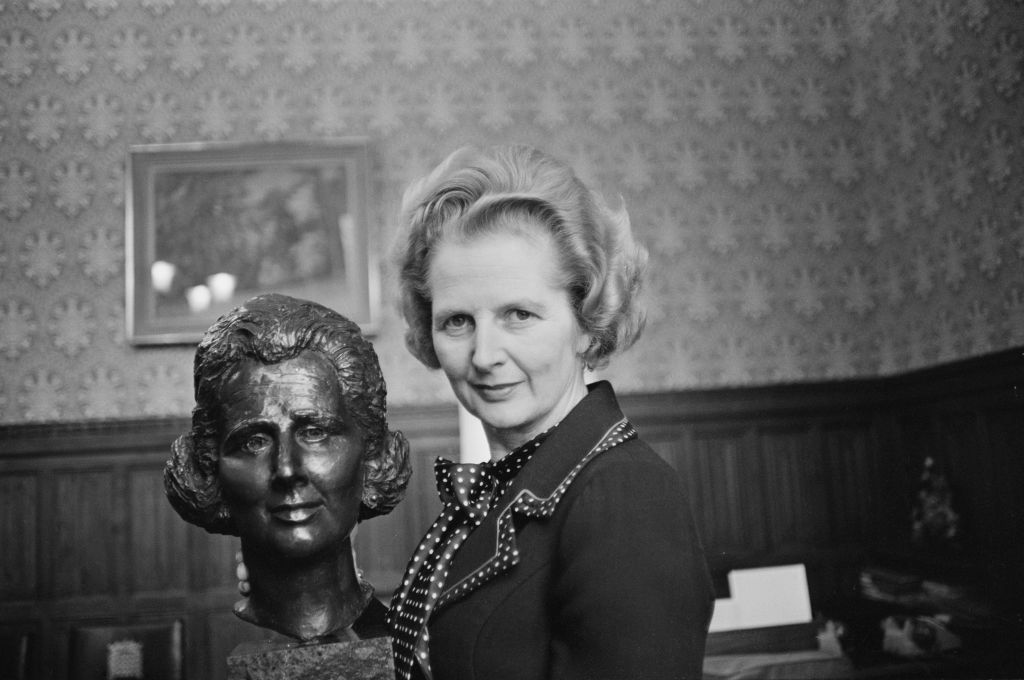 Was Margaret Thatcher great for Britain?
Was Margaret Thatcher great for Britain?The 'Iron Lady’ would be celebrating her 100th birthday this month. Margaret Thatcher rose to power in 1979 as the first ever female prime minister and was one of the most controversial leaders in history, but how did her policies shape today’s finances?
-
 It’s been 16 years, but the UK economy finally has a chance
It’s been 16 years, but the UK economy finally has a chanceOpinion The UK economy has been dealing with one crisis after another since 2007. Policymakers now have a chance to fix some of the underlying problems holding back growth.
-
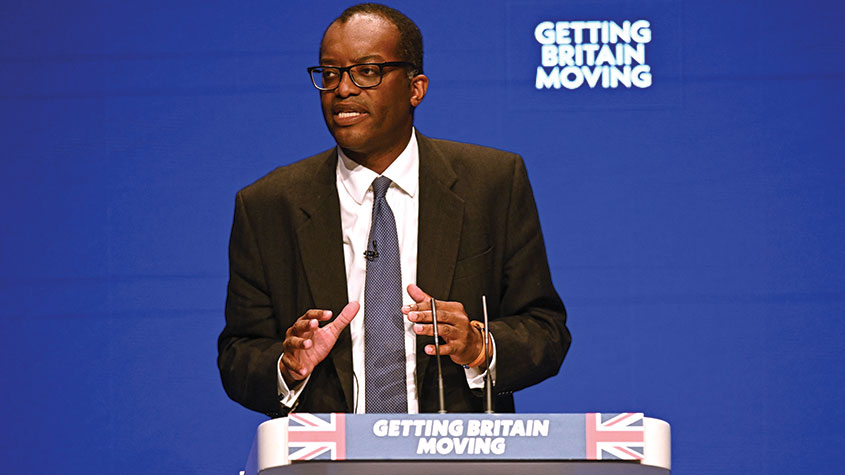 The “plan for growth”: what Truss and Kwarteng got right
The “plan for growth”: what Truss and Kwarteng got rightOpinion The Tories’ “plan for growth” has got off to a bad start, but their reforms can still transform Britain
-
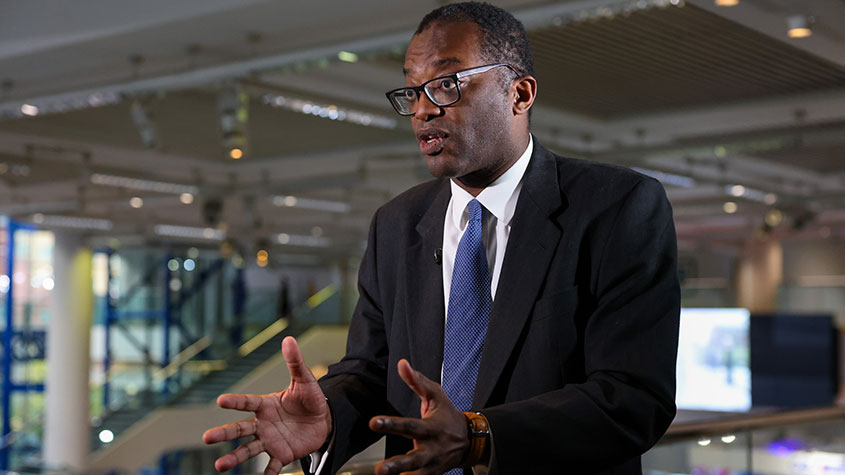 Kwasi Kwarteng U-turns on top tax rate decision
Kwasi Kwarteng U-turns on top tax rate decisionNews Kwasi Kwarteng has U-turned on his top tax rate reduction announced in his mini-Budget at the end of September.
-
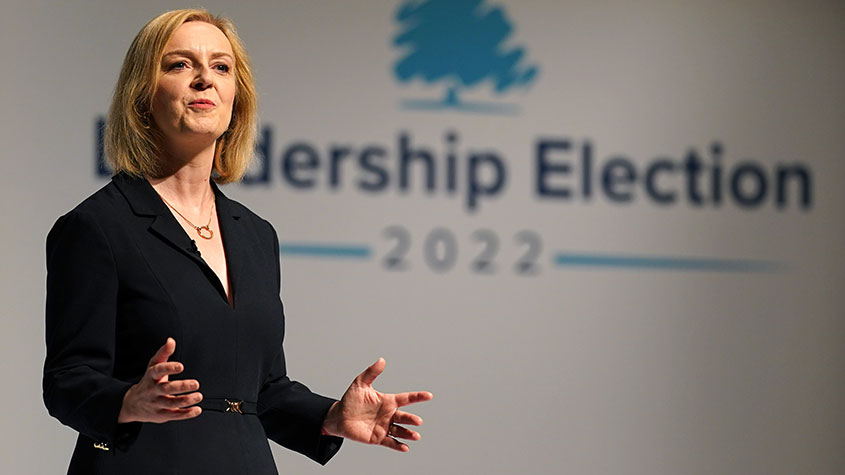 Investors should get ready for a political revolution
Investors should get ready for a political revolutionOpinion Liz Truss will beat Rishi Sunak, cut taxes, and then shake up the Bank of England, says Helen Thomas
-
 Who will be the next prime minister and what are the bookies’ odds?
Who will be the next prime minister and what are the bookies’ odds?News The Tory leadership contest is in its final phase. Matthew Partridge reports on the contest and looks at who the bookies’ favourite is.
-
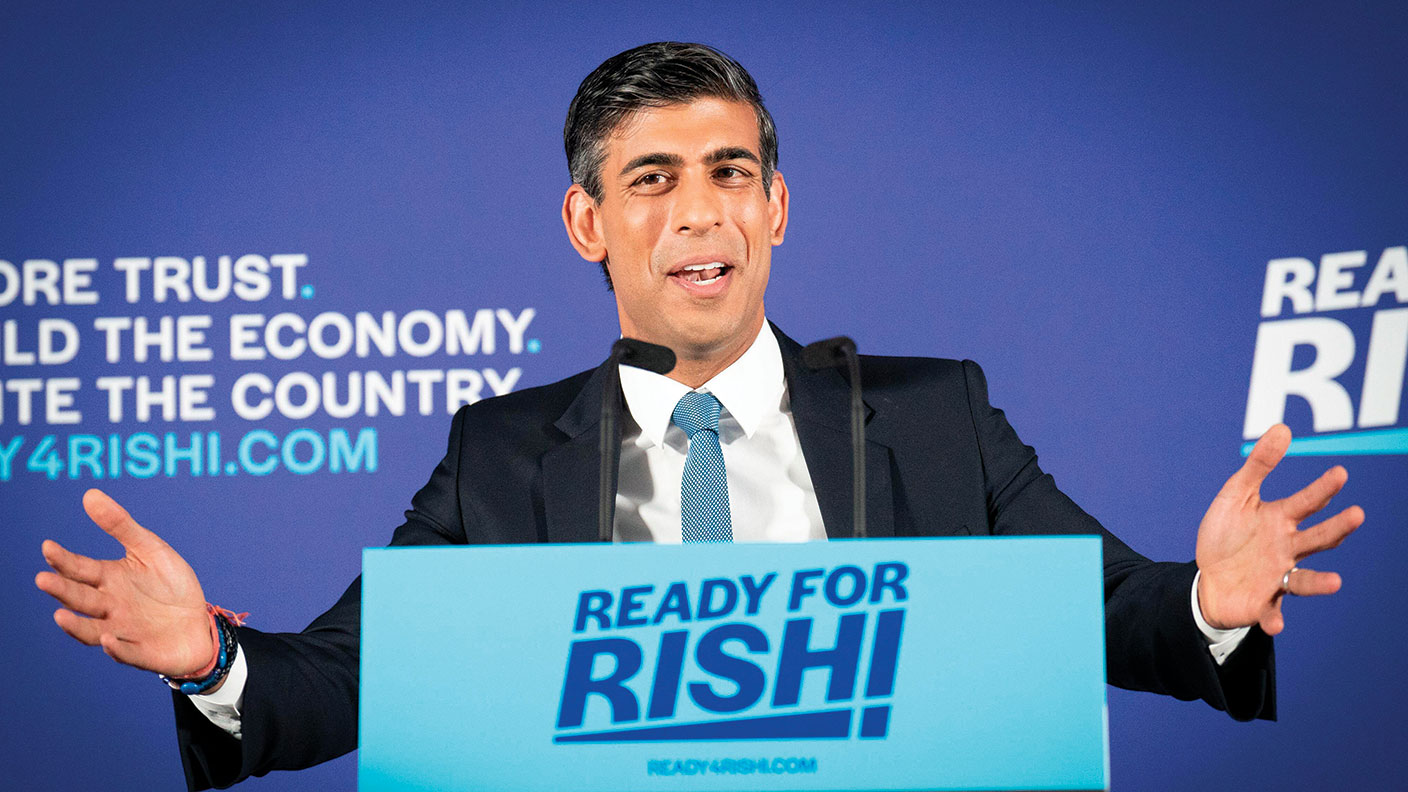 The public may have reached its limit for tax rises
The public may have reached its limit for tax risesEditor's letter The UK tax burden is now at a 70-year high. And, while there may be some reason to hold off on cuts right now, taxes are too high because the state tries to do too much. Perhaps it should do less, says Merryn Somerset Webb.
-
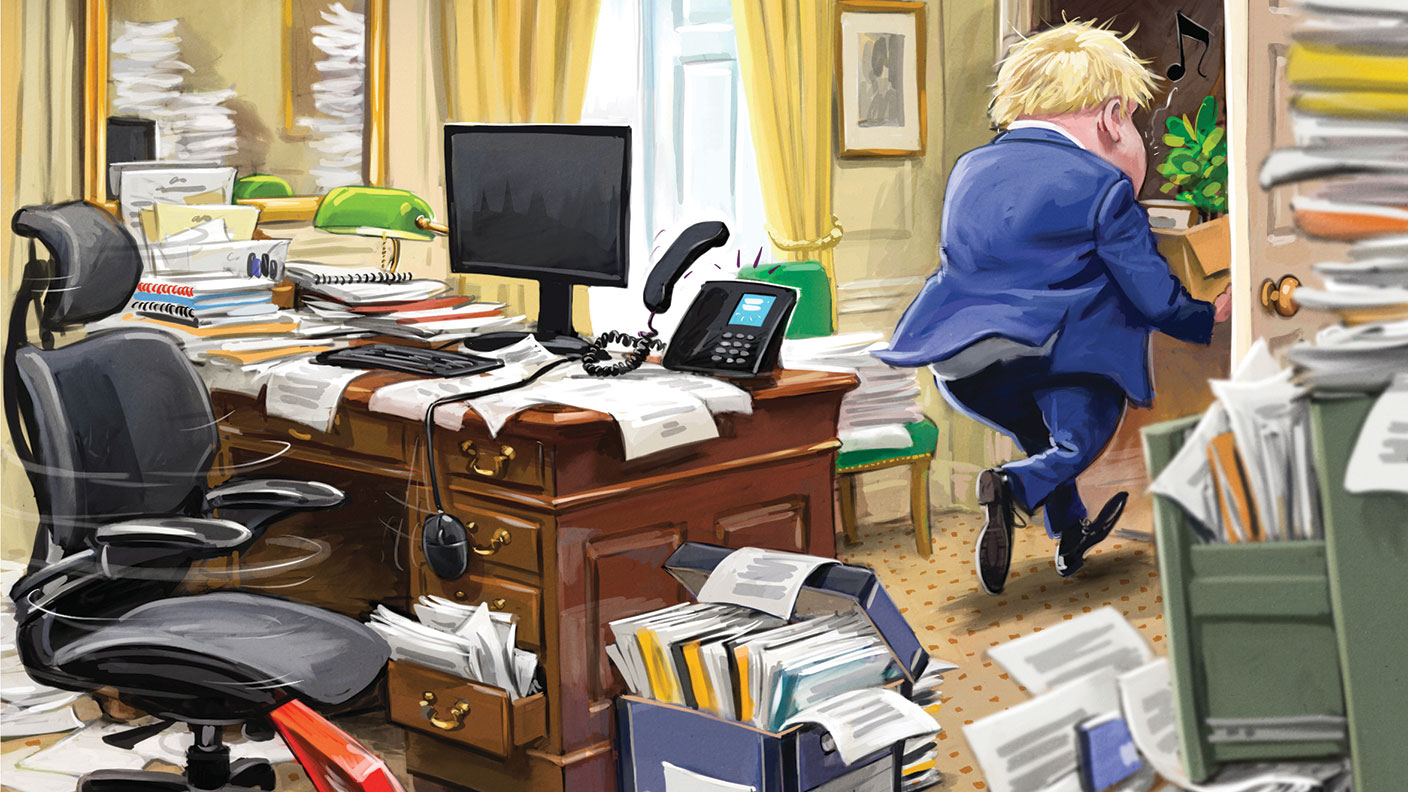 Boris Johnson's exit leaves Britain with a towering in-tray
Boris Johnson's exit leaves Britain with a towering in-trayBriefings Britain’s economic problems are rapidly piling up after the last few years of drift and chaos. What should we do first?